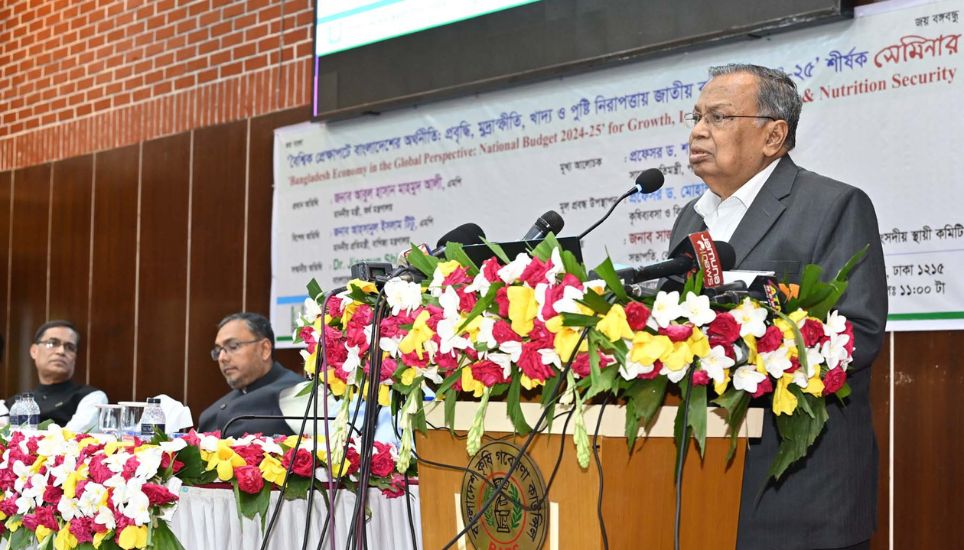
Former state minister for planning Shamsul Alam on Thursday said money laundering is the key reason for the ongoing dollar crisis in the country.
He noted that the current dollar crisis stemmed from money laundering as $7-$8 billion is laundered annually from Bangladesh. Therefore, urgent measures are needed to prevent it.
Experts echoed Shamsul Alam's observation made during a seminar titled 'Bangladesh Economy in the Global Perspective: National Budget 2024-2025 for Growth, Inflation, Food and Nutrition Security,' jointly organised by the Bangladesh Agricultural Economists Association (BAEA) and the Food and Agriculture Organization (FAO), held at the Bangladesh Agricultural Research Council (BARC) in Dhaka.
Finance Minister Abul Hassan Mahmood Ali, State Minister for Commerce Ahasanul Islam Titu, lawmaker Shazzadul Hasan, and FAO representative Jiaoqun Shi also addressed the event.

Titu said that the government had to spend an additional $14 billion on fuel, food and fertiliser imports, which also played a significant part in the ongoing dollar crisis.
Shamsul Alam said the official figure for default loans is nine per cent. However, 22 per cent of the loans are now risky, which should be taken into consideration as they increase the cost of funds.
He explained, "Therefore, to increase the growth, the non-performing or bad loans should be reduced. At the same time, the benefit of the merger in the banking sector is uncertain."
He suggested a bank commission or at least a strong committee to be formed with concerned experts for a logical solution for the financial sector.
Shamsul also proposed the appointment of a Tax Ombudsman and the specified separation of functions of the National Board of Revenue (NBR) and the Internal Resources Division (IRD) regarding tax-related formalities.
Former state minister for planning also explained that allowing more imports can help control inflation and break up syndicates that form when a product is scarce while adding, "The government has taken steps which will bring down inflation, such as reducing the size of the budget, raising interest rates, and lowering import duties on essential products.
He remarked that the focus should now be on GDP growth, which requires solving the dollar crisis.
"Offshore banking has been introduced but needs strengthening, with strict monitoring of banks involved. This method helped Pakistan during its dire crisis," he added.
To boost growth, interest rate hikes should be stopped, as high rates deter investment, especially for small and medium businesses, he added.
Growth can also be increased by boosting supply in agriculture and industry and by relying more on foreign loans to cover the budget deficit, Shamsul mentioned.
Mohammad Jahangir Alam, professor at the Department of Agribusiness and Marketing of Bangladesh Agricultural University, presented the keynote article at the seminar.
Addressing budget critics, the finance minister said that the World Bank has also reviewed the budget and stated that Bangladesh is doing well. He emphasised the importance of listening to the World Bank, noting that it's not just about following their advice but also about the financial support they provide.
He also urged agricultural economists to read the budget as it is people-friendly. He acknowledged that there are still some proposals under review, noting that since the budget has yet to be passed, there is a possibility for reconsideration.